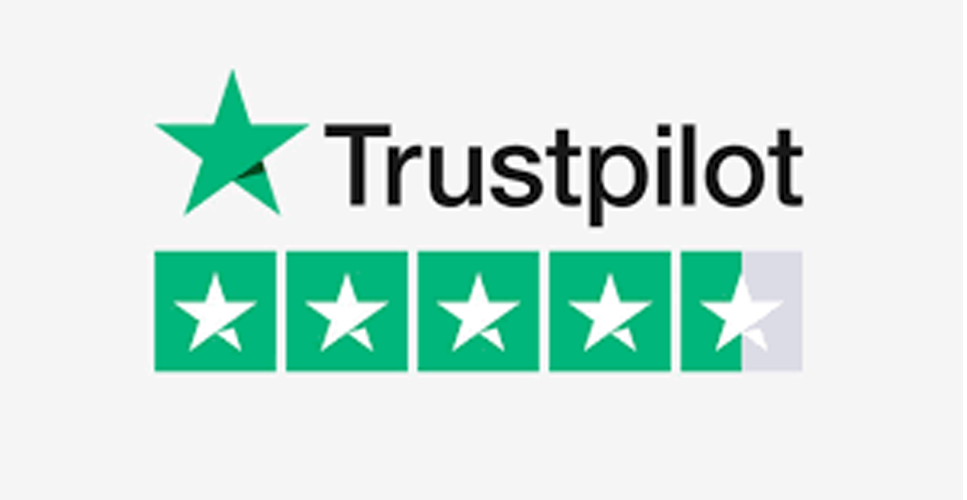Does Google Ads Work for Small Businesses in 2024? Is It Worth It?
As we step into 2024, small businesses are increasingly looking for effective ways to enhance their visibility and drive sales. One of the most discussed options is leveraging Google Ads. This advertising platform has evolved significantly, making it essential for local businesses to understand its potential benefits and drawbacks. In this article, we will explore how Google Ads works for small businesses, the importance of running a Google Ads campaign, and whether it is worth the investment.

Understanding Google Ads for Small Businesses
What is Google Ads?
Google Ads, formerly known as AdWords, is a powerful online advertising platform that allows businesses to create ads that appear on Google's search engine results pages and across the Google Display Network. Advertisers can use keywords relevant to their products or services to target specific queries, ensuring their ads reach the right audience. For a small business, using Google Ads means you can set a daily budget and bid on keywords, paying only when potential customers click on your ad. This pay-per-click (PPC) model allows for cost-effective advertising, especially for those new to Google Ads, as it can be tailored to fit various budgets while maximizing visibility in search results.
How Google Ads Work for Small Businesses
In 2024, Google Ads works by allowing small businesses to create targeted advertising campaigns that can reach local and global audiences alike. By selecting relevant keywords, businesses can optimize their ads for search queries that potential customers are likely to use. When someone searches for a product or service, Google assesses the quality score of the ads and their bids to determine which ads appear in the search results. Small businesses can choose between different ad formats, including search ads, display ads, and shopping ads, each designed to attract clicks and encourage conversions. By carefully managing their Google Ads account, businesses can analyze performance, adjust bids, and refine their strategies to maximize their return on investment.
The Importance of a Google Ads Campaign
A well-structured Google Ads campaign is crucial for small businesses looking to thrive in the competitive digital landscape of 2024. It not only increases brand visibility but also directs targeted traffic to your landing page, enhancing the likelihood of conversions. With effective keyword targeting and compelling ad copy, businesses can capture the attention of potential customers actively searching for their products or services. Additionally, Google Analytics can provide valuable insights into campaign performance, enabling businesses to optimize their strategies based on real-time data. Understanding the cons of Google Ads, such as the cost per click and the need for ongoing management, is essential. However, if you’re willing to invest time and resources into a Google Ads campaign, it can lead to substantial growth for your small business.

Evaluating the Worth of Google Ads in 2024
Are Google Ads Worth the Investment?
In 2024, the question of whether Google Ads are worth the investment remains a crucial consideration for small businesses. The platform's ability to provide targeted exposure through relevant keywords means that advertisers can reach potential customers actively seeking specific products or services. By using Google Ads, businesses can set a daily budget and utilize a pay-per-click (PPC) model, allowing for cost-effective ad spending. However, the worthiness of this investment often hinges on the quality of the ads created and the management of the Google Ads account. With careful planning and execution, the returns can far outweigh the costs, making it a valuable tool for visibility that enhances the chances of conversion and drives traffic to landing pages.
Cost vs. Return: An Advertiser's Perspective
From an advertiser's perspective, understanding the cost versus return of a Google Ads campaign is vital. The cost per click (CPC) can vary significantly based on competition and keyword selection, making it essential to optimize ad spending. Advertisers should analyze their quality score, as higher scores typically lead to lower CPCs and better ad placements. In 2024, many small businesses report a positive return on investment when they effectively manage their Google Ads campaigns. By tracking conversions and utilizing Google Analytics, advertisers can gain insights into which keywords are driving traffic and generating sales, allowing them to adjust bids and refine their strategies accordingly. Thus, while the upfront costs may seem daunting, the potential returns can validate the investment in paid search advertising.
Comparing Google Ads to Facebook Ads
When comparing Google Ads to Facebook Ads, small businesses must consider their unique marketing objectives and target audience. Google Ads primarily capture intent-driven traffic, as users are actively searching for specific queries on Google Search. In contrast, Facebook Ads excel at creating brand awareness by targeting users based on demographics, interests, and behaviors. Each advertising platform has its pros and cons—Google Ads can provide immediate visibility through search results, while Facebook Ads can build long-term engagement with visually appealing content. Ultimately, businesses may find that a combination of both platforms enhances their overall online presence. By understanding how each platform works, small businesses can allocate their advertising budget effectively to achieve their marketing goals in 2024 and beyond.

Creating Effective Google Ads
Steps to Create Google Ads for Your Business
Creating effective Google Ads for your small business involves several key steps that ensure your advertising efforts yield the desired results. First, you must identify your target audience and the keywords they are likely to use when searching for your products or services. This keyword research is foundational in determining the success of your Google Ads campaign. Next, you should set a daily budget that aligns with your financial constraints while allowing for sufficient exposure. Once you have your keywords and budget, you can create compelling ad copy that captures attention and encourages clicks. It’s essential to choose the appropriate ad formats, such as search ads or display ads, to effectively reach your audience. Finally, continuously monitor and optimize your Google Ads account to improve performance and return on investment.
Writing Compelling Ad Copy
Writing compelling ad copy is crucial for the success of your Google Ads campaign. Your ad copy should be concise yet engaging, highlighting the unique selling points of your products or services. Incorporate the keywords you’ve identified to ensure your ads appear in relevant search results. Use action-oriented language that encourages users to click on your ad, such as “Shop Now” or “Get a Free Quote.” It’s also beneficial to include a call-to-action that directs potential customers to your landing page, where they can learn more about your offerings. Additionally, consider using ad extensions, such as site links or call buttons, to provide more information and increase the likelihood of conversions. Remember, effective ad copy can significantly impact your click-through rates and ultimately drive more traffic to your site.
Optimizing Click-Through Rates
Optimizing click-through rates (CTR) is essential for maximizing the effectiveness of your Google Ads campaigns. A higher CTR not only indicates that your ads are resonating with your target audience but also positively influences your quality score, leading to lower cost per click (CPC) rates. Start by conducting A/B testing on different ad variations to see which headlines and descriptions perform best. Incorporate negative keywords to prevent your ads from appearing in irrelevant searches, thereby improving CTR. It’s also vital to ensure that your landing page provides a seamless experience, as a slow or confusing page can deter potential customers post-click. Additionally, regularly reviewing the performance data from Google Analytics will give you insights into user behavior and allow you to make data-driven adjustments to your campaigns, ensuring continued optimization and effectiveness in reaching your business goals.

Pros and Cons of Google Ads
Pros of Using Google Ads for Small Businesses
Utilizing Google Ads offers numerous advantages for small businesses aiming to expand their reach in 2024. First and foremost, Google Ads work by providing immediate visibility across Google's search engine and display network, allowing businesses to target potential customers actively searching for their products or services. This targeted approach increases the likelihood of conversions, as ads appear in relevant search results based on selected keywords. Additionally, the flexible daily budget allows small businesses to manage their advertising expenses effectively, making it accessible for those new to Google Ads. Moreover, the pay-per-click (PPC) model ensures that businesses only pay when users click on their ads, optimizing cost-effectiveness. Finally, the wealth of data from Google Analytics enables advertisers to track performance and refine their strategies, maximizing the return on investment.
Cons of Google Ads: What Marketers Should Know
Despite the numerous benefits, there are notable cons of Google Ads that marketers must consider. One significant drawback is the potential for high costs, particularly in competitive industries where the cost per click (CPC) can escalate rapidly. Small businesses may find it challenging to maintain a profitable Google Ads campaign if they’re not diligent in optimizing their ad spend. Furthermore, managing a Google Ads account requires ongoing effort and expertise; advertisers must continuously analyze performance metrics and adjust bids and ad copy to stay competitive. Additionally, there’s a learning curve for those new to Google Ads, which may lead to inefficiencies if not addressed promptly. Lastly, while Google Ads can drive immediate traffic, it may not foster long-term brand loyalty, necessitating a balanced approach that includes other marketing strategies.
First Google Campaign: Lessons Learned
Launching your first Google Ads campaign can be both exciting and challenging, offering valuable lessons for small businesses. One crucial takeaway is the importance of thorough keyword research; understanding which keywords resonate with your target audience can significantly impact the success of your Google Ads. Many advertisers discover that starting with a limited budget allows for testing various ad formats, such as search ads and display ads, to determine which yield the highest click-through rates. Additionally, tracking conversions and utilizing Google Analytics from the outset provides essential insights into user behavior and campaign effectiveness. Another lesson learned is the need for patience; results may not be immediate, and optimizing campaigns often requires time and adjustments. Ultimately, every campaign, regardless of its initial success, serves as a learning opportunity, paving the way for more refined and effective advertising strategies in the future.
We’re Ready When You Are
See What We Can Do For Your Business






















